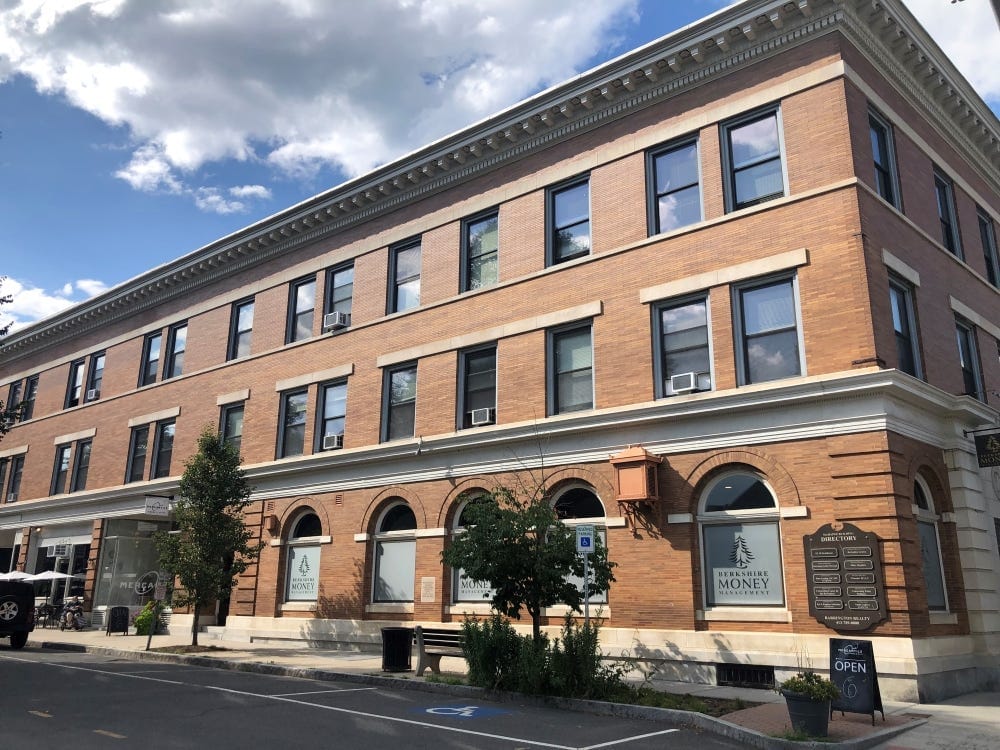Alander Group has offered financial and relocation assistance to the few remaining tenants. What should other downtown tenants expect if their buildings go up for sale?
∎ ∎ ∎
Aside from simmering controversy over a $250,000 town grant for historic-restoration work at 343 Main Street and curiosity about his plans for the Prospect Lake Park campground, what put real-estate developer Ian Rasch squarely in the public eye this year was his acquisition of the historic Mahaiwe Block on the corner of Castle and Main in the heart of downtown Great Barrington.
Designed by Joseph McArthur Vance, built in 1905, and listed on the National Register of Historic Places, Rasch closed on the $3.5 million purchase on Tuesday and has ambitious plans to gut-renovate the top two floors into 22 primarily one-bedroom apartments that, he told me, will be comparable in size, finish, and amenities to those he built at his mixed-use complex at 47 Railroad.
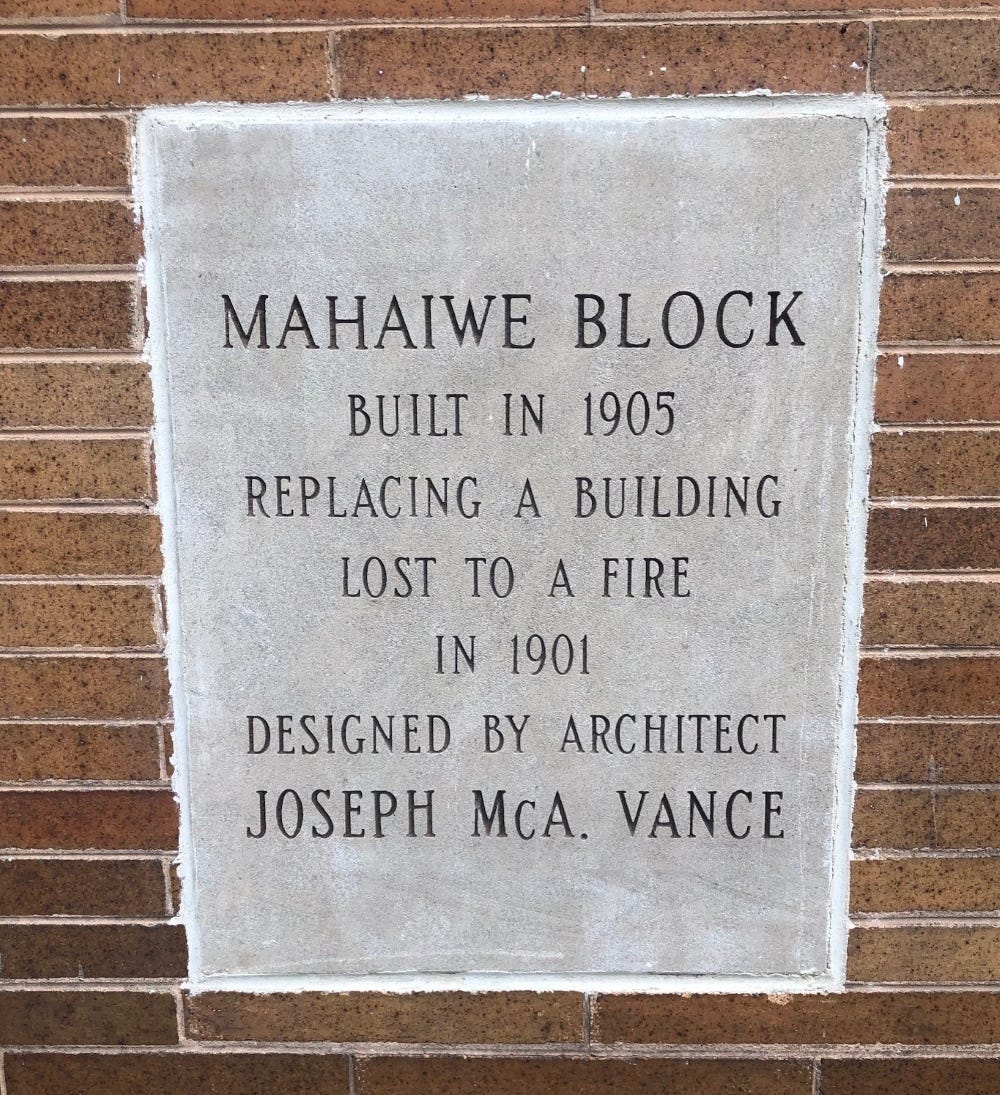
Initial rents for a one-bedroom will start at $1,767 per month, Rasch told me last month. Though he said more recently that market rent for his new luxury apartments—he quibbled with that characterization when I spoke to him yesterday, but “luxury” comes directly from a market study he commissioned—is now closer to $2,500 per month.
He has committed to offering 20 percent of the apartments at reduced cost for income-qualified tenants. (How that might work, and for whom, was detailed in part two of this series.)
Rasch first became interested in the Mahaiwe Block as he was relocating back to the Berkshires from Park Slope, Brooklyn in 2008. He told me that he sent a letter to then-owner Raymond F. Pieczarka to inquire about purchasing the building.
Pieczarka, who died in 2017, owned a Chicopee-based heating-and-cooling business and also acquired real estate in central Massachusetts and the Berkshires. He told Rasch he wasn’t interested in selling. Ultimately, it was his wife, local real-estate agent Madeleine “Mandy” Victor-Pieczarka, who began discussions with Rasch last winter.
As first reported in July, Rasch’s acquisition and planned renovation has displaced the existing residential tenants of a dozen top-floor apartments who enjoyed remarkably affordable rents for many years in a historic downtown building—one that Rasch and Victor-Pieczarka point out has gone without renovation or needed upgrades for many years. (All but a handful of tenants have already moved out.)
The building faces what Rasch described during our conversations as impending “functional obsolescence.” It requires substantial work that he says can’t be completed while occupied. (The Mahaiwe Block does not include the adjacent Mahaiwe Center for the Performing Arts.)

He said that as the deal neared closing, he found new and more complex problems. “In the last couple of weeks, even before closing, we encountered major issues with the boiler, with drainage in the back [alley], the basement filling up with water, with major leaks into apartments,” he told me. “I mean, again, it’s like this romantic idea of yes, there’s a building that was operating just fine at $450 a month rent. But no one’s really paying attention to the $5 million investment that is required.”
Without the work he’s prepared to do, Rasch said the building was on the verge of being “a blighted, precarious living situation for both residential and commercial tenants.”
Indeed, in recent weeks some remaining tenants, who agreed to speak on condition of anonymity to discuss their housing situation, told me that before Rasch took ownership there had been no heat in the building this fall. Massachusetts law requires rental-property owners to keep daytime temperatures in rental units between 68 and 78 degrees from September 16 through June 14. At night, temperatures must be at least 64 degrees. So they’ve relied on space heaters and sleeping in sweaters and socks.
Rasch brought up the 40-year-old steam boiler and heating system as just one example of why the building needs a massive overhaul, suggesting several times that the unit couldn’t easily be repaired or simply replaced. Presumably, that means at a cost he considers reasonable given plans to shortly replace the entire HVAC system with a modern, efficient, electric heat-pump system as part of a host of energy-efficiency upgrades.
Still, he told me yesterday that HVAC technicians are working this week and next to try to repair the boiler. He also provided up to three oil-filled space heaters to each tenant and is paying their electric bills until they can be relocated, which he expects will be “in the next month or less.”
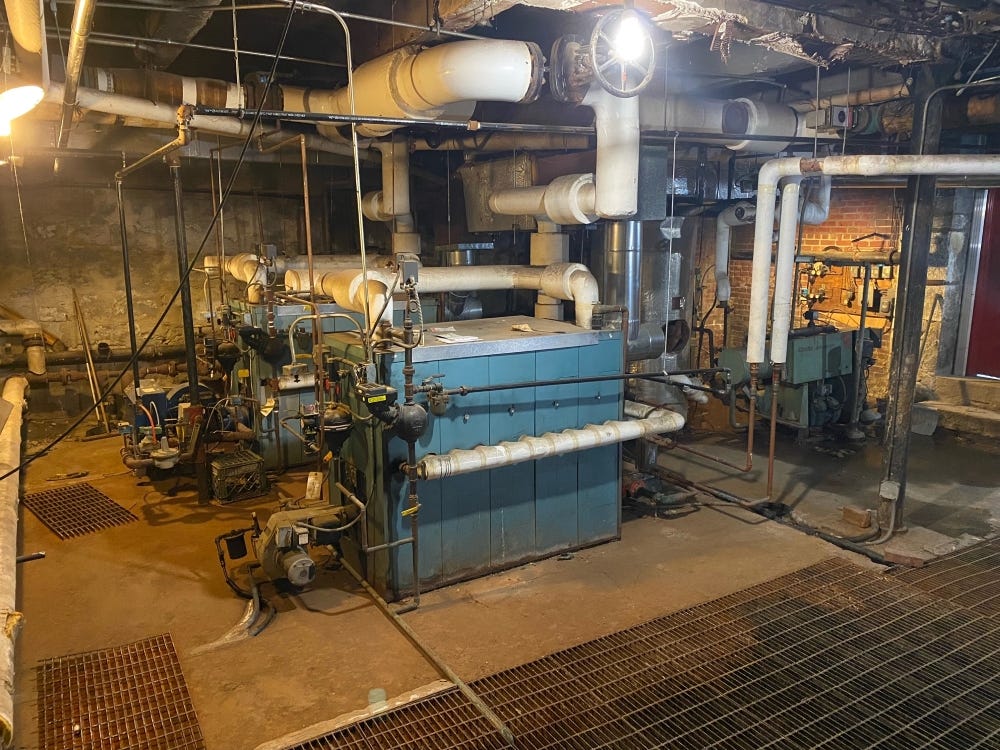
Whether a boiler repair is possible, or it requires replacement, is largely immaterial: Building owners must provide habitable conditions to tenants.
Rasch and his staff are, as promised, working with the three remaining tenants. “We’ve found available apartments, more than the required number that we need to relocate tenants,” he told me yesterday—no small feat in this challenging housing environment. He said they’re walkable to downtown, and he’s offered to pay the difference in price between what tenants have paid at the Mahaiwe Block and the cost of the new rental apartments. “We’ll cover that gap for a year, anyway, and try to work with them to solve that problem,” he said.
With plans to acquire other mixed-use downtown buildings that currently have residential tenants in generally affordable, if dated, apartments—Rasch told me there are at least “four or five buildings” downtown that he’d like to acquire—the way large multi-unit building owners, old and new, manage the displacement of tenants into an extraordinarily difficult housing market is under a microscope.
Perhaps that’s unusual. In more typical times, when buildings change hands or tenants’ leases are not renewed, there are plenty of other housing options available. Not anymore—and certainly not in Great Barrington.
Rental properties for sale may be more attractive to buyers if they are empty, particularly those ripe for substantial redevelopment and upgrades like the aging mixed-use buildings downtown. But a new owner is required by law to honor existing leases, so there’s an advantage to an empty building if the goal is to make it attractive to a developer.
Alternatively, an owner can lay the groundwork for a potential purchaser to clear out a building quickly by not renewing leases as they come up for renewal. They can also offer “cash for keys,” a payment to a tenant under an existing lease as part of an agreement to vacate. Though it’s not required, an owner could also offer relocation assistance, cover moving expenses, or at least point tenants to available rental listings.
Here’s a breaking-news example: John Tracy, who along with his wife Diane is the longtime proprietor of the storied Gorham & Norton package store on Main Street, is also part owner of the Marble Block mixed-use building where the store has operated since 1911. When I called Tracy yesterday, he confirmed that the 120-year-old building was just a couple of hours away from being listed for sale for $2.25 million. He said he hasn’t talked to Rasch about a possible sale.
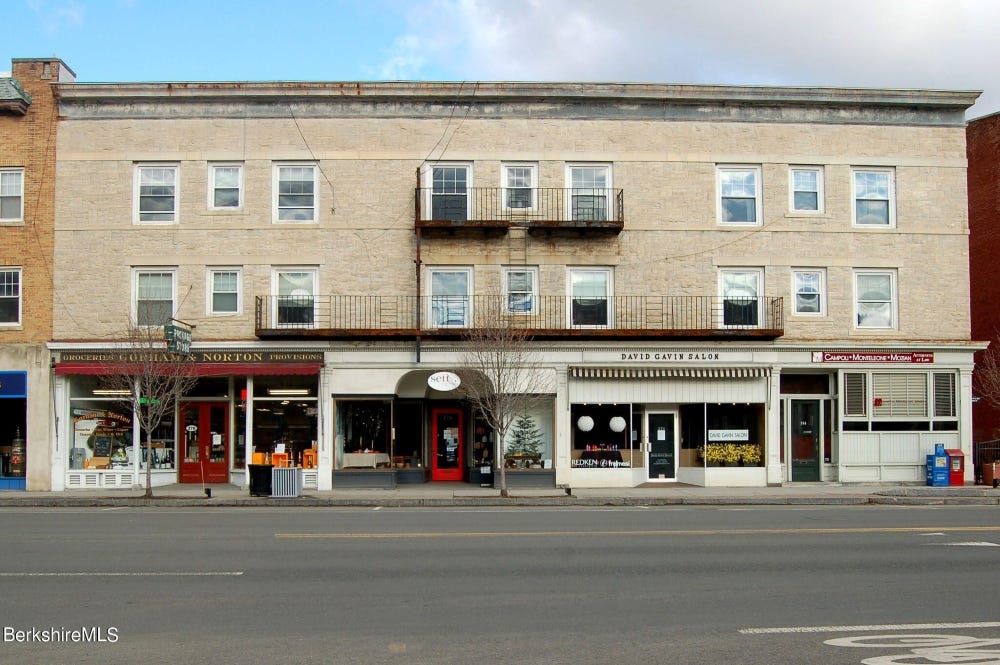
In addition to the iconic sandwich-and-alcohol-and-food shop, the Marble Block has five other commercial spaces—and eight residential one- and two-bedroom apartments on the upper floors. Ground-floor tenants include homewares store Sett; the David Gavin Salon; and a law firm, Campoli, Monteleone & Mozian, P.C.
Tracy told me that he was unable to reach agreement to buy out the ownership share held by the family of his business partner in the property, former Berkshire Courier newspaper owner George G. Francis, who died in 2018. So he decided to sell the building. “I couldn’t come to an agreement on a price with my partners, so we put it on the market,” he said.
With concern likely to be high about the future of Tracy’s popular—and affordable—sandwiches, and the possible loss of a century-old Great Barrington institution, he said it’s unclear what will happen to Gorham & Norton when the building is sold. “That’s all up in the air,” he said.
Importantly, Tracy told me that he’s already advised his tenants that the building is for sale. That gives them time to consider relocating and search for a new place to live. That notification may cost him cash flow, as there’s no way to know how long it will take to complete a sale.
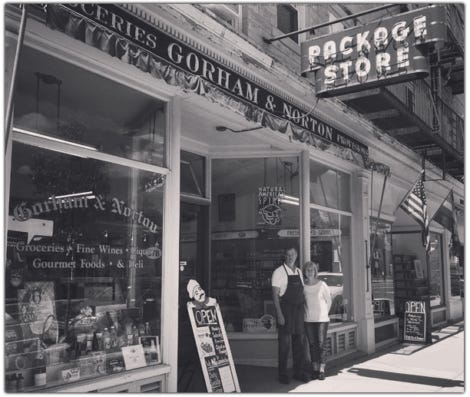
Victor-Pieczarka chose a different path, perhaps cognizant of the uncertainties and complexities involved in pulling off a deal to sell a troubled property—or for other business reasons. As I reported in July, while her negotiations with Rasch proceeded last winter, she stopped offering renewals when commercial and residential tenants’ leases expired, and did so without explanation, according to the tenants I’ve spoken to since this summer.
For many years the building’s property manager handled residential lease renewals, usually by slipping a new lease under apartment doors as the current one neared its end, they told me. Rents rarely increased, and if they did, by only a nominal amount. The small studio and one-bedroom apartments were rented for well below market rent, in most cases for $450-$750 per month, enabling a diverse mix of artists, writers, retirees and local workers to afford to live downtown. But since last winter, even longtime tenants didn’t receive a new lease to replace expiring ones.
Those who inquired about renewal were given no information. Any that bypassed the relatively new property-management company and tried to contact Victor-Pieczarka directly were advised to only contact the management company. They were still given no details about the pending sale, any timeline, or what the impact might be on their living situation. Multiple tenants described the stress and uncertainty they felt, particularly given the lack of available and affordable housing in town.
Rasch confirmed yesterday that a condition of the purchase-and-sale agreement signed by the parties in February prevented Victor-Pieczarka from renewing expiring leases or entering into any new ones, something he said is fairly common in commercial real-estate agreements.
Tenants had growing suspicions. In March, representatives of the management company entered every unit to take photographs and measurements for what tenants were told, via letter, was “to determine renovations costs.” That was true, in a way, but also quite misleading: The visits were authorized by Victor-Pieczarka and part of Rasch’s due diligence as work toward a sale continued into the summer and early fall.
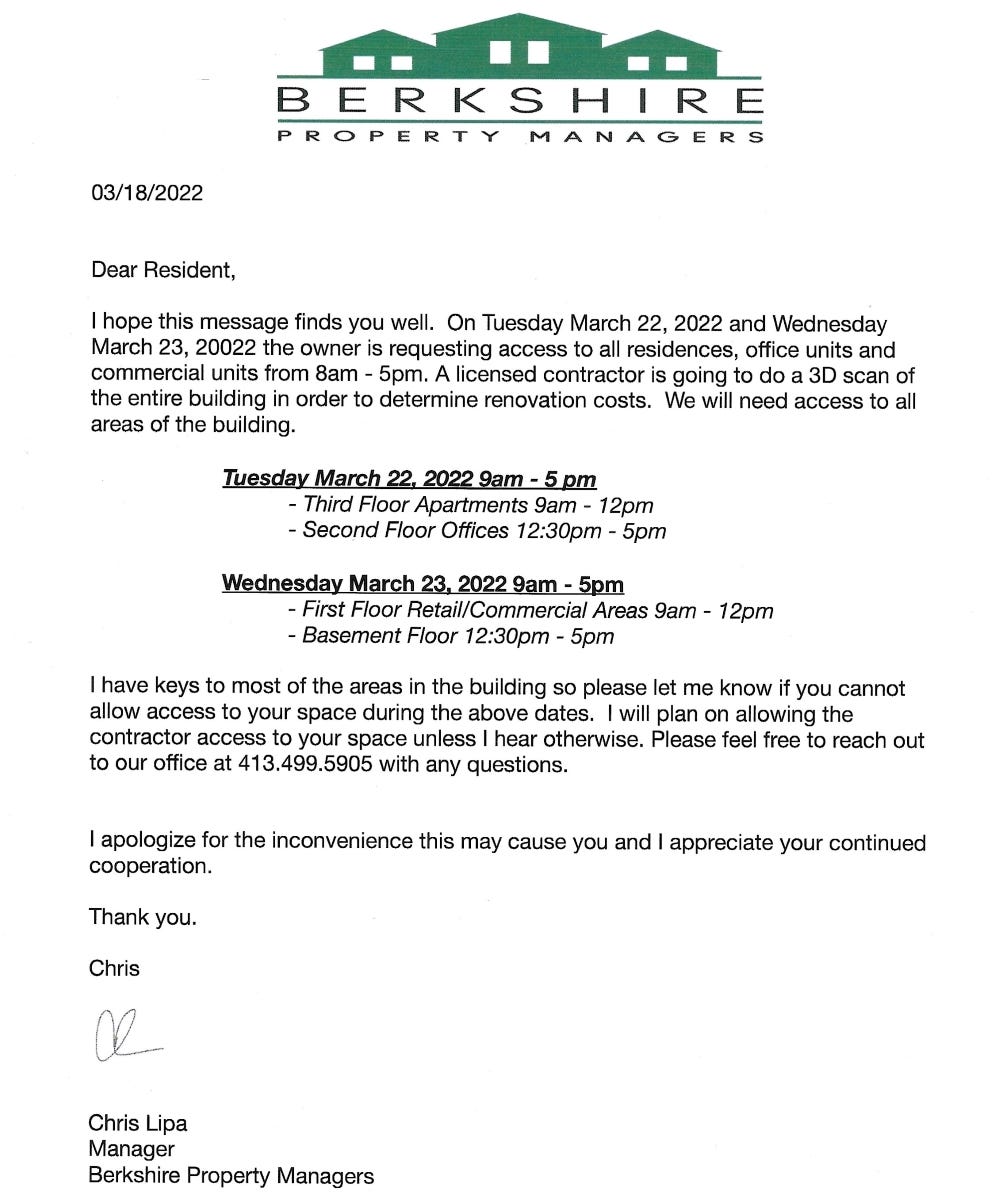
When I called Victor-Pieczarka’s Springfield-based attorney, Ronda Parish, back in June, she told me that not only had tenants not been advised that the building might be sold—allowing them time to navigate a challenging housing market—but suggested there would be no information coming. “No one discloses that before a transaction happens. Obviously, the tenants will eventually know,” she told me in July.
Even after the pending sale became public in The Edge, there was still no communication from owner to tenants—nor after The Berkshire Eagle reported additional details in early September. (Ground-floor tenants received a mid-October notice of the sale with instructions to send November rent to Rasch.)
Victor-Pieczarka, a real-estate agent with Stone House Properties, also told me in July that her tenants had done well with below-market rents for many years and received a month-and-a-half rent abatement at the start of the pandemic in 2020. She feared she was going to be “vilified” for selling the building, which she said she didn’t want to manage any longer.
“I’m at an age I don’t want to deal with that building,” she told me. “I can’t live my life for everybody. [The tenants] had a really good run and I feel badly, and I can’t make it better, and that’s frustrating [to me].” She also told me at the time that her late husband “would be thrilled that [the building] is going to be upgraded,” adding, “That building needs all kinds of upgrades. You can have a crumbling building, or you can have a building that’s being maintained.”
Under the new property management company, upkeep of the aging building had suffered in recent years, according to tenants. Many were convinced Pieczarka did not want to spend money to make even minor repairs to a building about to be sold. They described a range of issues including days without heat, water leaks and substantial water damage, nonfunctioning window mechanisms, and security and fire doors that didn’t operate properly.
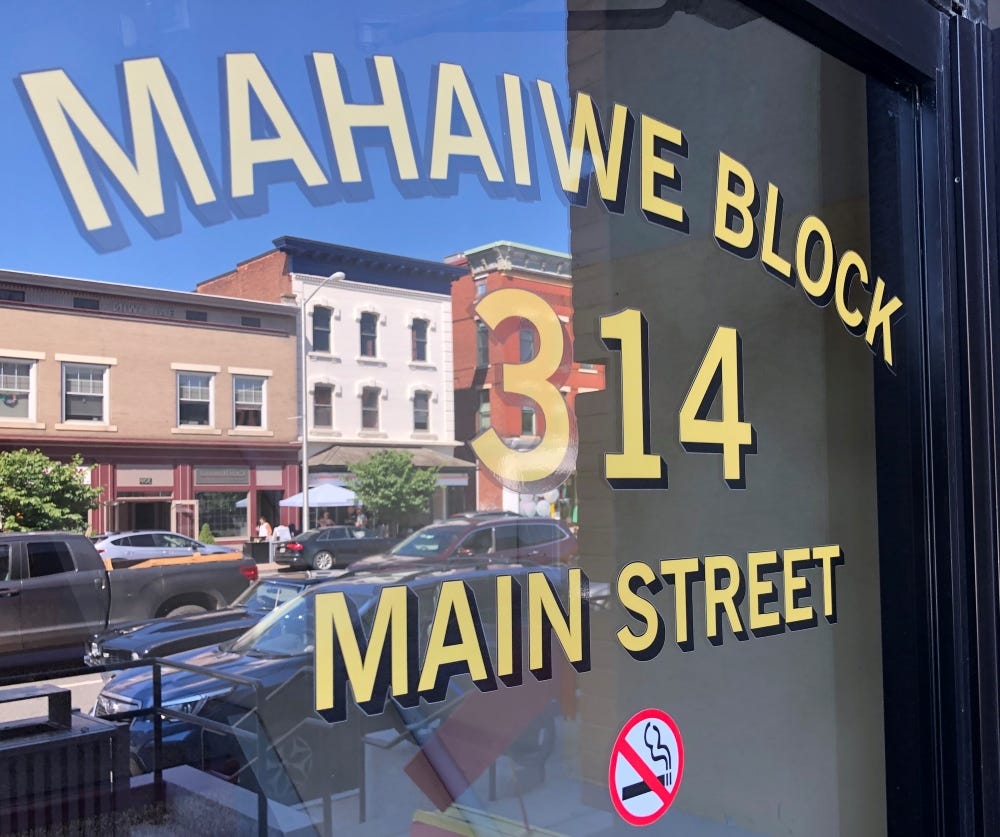
Following news reports of the pending sale, many tenants moved out. Cognizant of the lack of available housing in the area, and his plans for a major renovation that required an empty building, Rasch told me that even though he didn’t yet own the building he began reaching out to tenants several months ago to offer relocation assistance.
“We are very much invested in helping anyone that needs financial assistance, help them find a place and work with them financially to make that work. We are 100 percent committed to that,” he told me at the beginning of September.
Still, his early outreach was confusing. E-mails reviewed by The Edge and conversations with tenants show that offers were nonspecific and largely left tenants with the same uncertainty and suspicion they had felt all year. A mid-August email Rasch sent to tenants advised, “The building is in need of substantial renovations including a new heating system, fire alarm system, sprinkler system, electrical, plumbing, etc.,” Rasch wrote. “Given the extent of the renovations required, we will need to work with the residential tenants to relocate them elsewhere this fall as the building will likely not be heated this winter.”
No doubt that’s why many simply left, wary of waiting for a sale to be completed at an unspecified time or navigating an uncertain future as cold weather approached—living on a month-to-month basis in a building they knew had heating problems. And, some told me, the months-long information vacuum made them immediately skeptical of Rasch’s offers.
Tenants have no obligation to engage with a potential new owner or give in to what is called a “soft eviction.” That’s when a current owner does not fully meet their obligations to provide a habitable living space or respond promptly to complaints. It could also apply to the type of email Rasch sent, suggesting apartments would be unheated and offering to “work with residential tenants to relocate them elsewhere,” bypassing a proper legal process meant to protect the rights of tenants.
Still, Rasch’s good-faith efforts appear to meet at the nexus of business need—he wants to begin work as soon as possible—and his legitimate concern about tenants still living in a building with complicated, and perhaps dangerous, unaddressed issues. He told me that it’s probably good that Victor-Pieczarka didn’t renew anyone’s lease.
“To be honest, this isn’t really an issue of housing,” he said yesterday afternoon. “I mean, in the event of a fire today in that building, there’s a high probability everyone’s not going to get out. I mean, there’s not a [fire alarm] call-out system, there’s not a hardwired alarm system.”
Rasch said he hired a contractor this week to install a new fire-alarm system that will serve temporarily until the remaining tenants have relocated. “This is really like a public-health and life-safety thing. I would not want any of my children or anyone that I know to live in that building,” he said.
Rebecca Jurczyk, the health agent in Great Barrington, told me yesterday that a preliminary review of town records found no recent complaints made about conditions in the building.
Given that a property owner can simply send month-to-month tenants notice to vacate in 30 days, it’s clear that Rasch has chosen a different, and better, approach. “Ian doesn’t have to do that, but he’s doing it anyway,” said June Wolfe, housing director at Construct. “I think [that’s] because he gets it. And he doesn’t want to be that person that kicks people out of their homes.”
Of course, sending those 30-day notices to vacate could kick off a legal process that might drag on for months. That would delay the start of the substantial work planned for the building and push out the date Rasch could start leasing new apartments and collecting rent. So his decision is better on all fronts.
While he told me that he didn’t necessarily see an issue with an owner choosing not to tell tenants about a pending sale, Rasch acknowledged that it’s a difficult situation—one that he may encounter again with other downtown buildings.
When I asked him a couple of weeks before the Mahaiwe Block sale closed if he’s learned anything about navigating the challenge of acquiring for redevelopment buildings with tenants still in them, he conceded that he didn’t have any great ideas. He pointed again to what he said was the deteriorating condition of the building.
“That’s very tough once you reach the end of the useful life of a building,” he said. It would be different, he suggested, if a building’s infrastructure can support ongoing occupancy while things like kitchens and bathrooms are renovated. “That’s pretty straightforward,” he said, and would allow tenants to stay.
But the larger problem during a major renovation is that there’s little housing available where tenants could, in theory, relocate temporarily. “The only way to do it is to try to find some additional accommodation to transition tenants out of an existing apartment, renovate them, and ideally bring them back in,” he said. “But you need some type of holdover apartment structure to be able to support that. And again, because we have such a shortage of units, I don’t have an easy answer for that.”
Plans for ‘curated’ retail
Rasch didn’t share plans for the Mahaiwe Block’s ground-level tenants or the units they occupy. But he did say that he’ll need to add sprinkler systems and do other things to bring all floors of the building up to modern building codes. The current tenants include Vault Gallery, No. 10 steakhouse, Berkshire Money Management, WBCR-LP community radio’s broadcast studio, the eclectic One Mercantile home goods and gifts boutique, and Samantha Gale Designs furniture and decor.
More generally, Rasch has a methodical and well-thought-out approach to what types of retail he thinks can work downtown, one that he has put to the test in miniature at 47 Railroad.
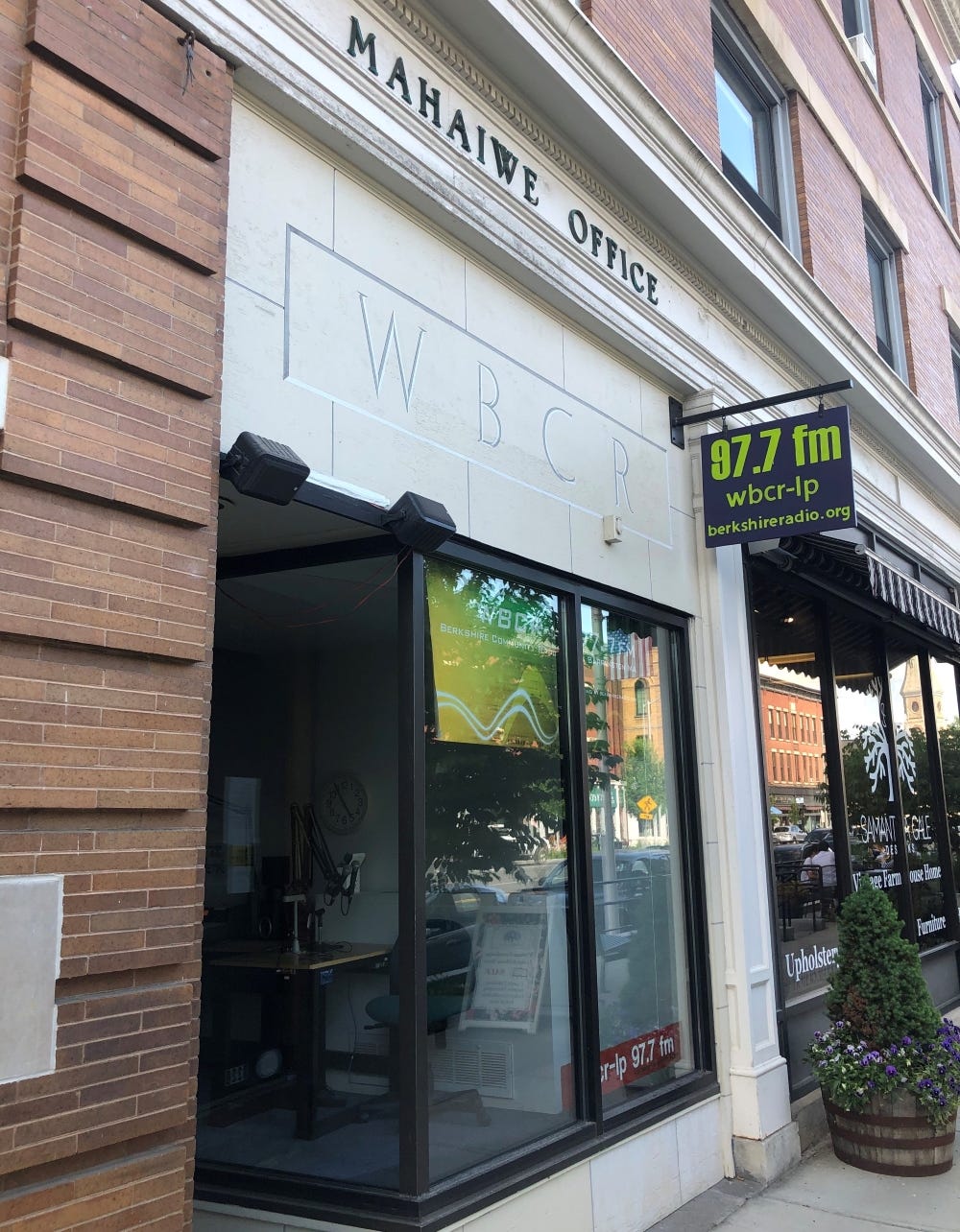
He said retail today should be “curated” and “smaller-scale.” Small ground-floor spaces make more sense, particularly at the higher per-square-foot rents required in newly renovated buildings. So that means retail stores, restaurants like coffee shop Marjoram + Roux and Josh Irwin’s upscale lounge MoonCloud, and other ventures that can operate in small street-level spaces are ideal.
He also described “layering a mix of uses” in retail spaces by, for example, combining a coffee shop with co-working space that might have small private offices available for meetings or to make phone calls–for a nominal fee. “And then you start creating a model that, from an occupancy perspective and a landlord perspective, works much better,” he said.
Overall, he sees opportunity for a lively downtown if the right mix of enterprises populate ground-floor spaces. “Retail’s not dead, especially experiential retail. It’s just that legacy retail stores to sell a bunch of little trinkets that people aren’t necessarily interested in? You have to be way more intentional with what you’re offering, and how it’s presented and engag[es] the public,” he said.
Rasch also pointed to this summer’s weekend-evening closures of Railroad Street as an example of the benefits of a walkable downtown—one that he compared favorably to European cities. Without auto traffic, there are more people walking by stores at a slower pace and more likely to stop and browse. He also noted a need for a common greenspace downtown and other areas that can serve as a public gathering place, like the brick patio area outside 47 Railroad.
While store owners were mixed about the Railroad Street closures—in part because of staffing problems widely understood to be housing-related—Rasch thinks stores could increase their sales “exponentially” if they take advantage of these opportunities.
In addition to the occupied street-level spaces in the Mahaiwe Block, Rasch’s in-progress 343 Main Street project has two ground-floor street-facing units. He told me that he doesn’t yet have committed tenants. He’ll need at least one, as the “by right” mixed-use zoning in that area requires residential buildings to include some commercial or retail space. Otherwise, it will require a special permit from the Selectboard.
∎ ∎ ∎
NEXT: Rasch’s 343 Main Street project received $250,000 from the Town of Great Barrington for external historical-restoration work. The plan was for a “Sustainable Food Lab and Health and Wellness Center.” Instead, the building will house 13 more high-end downtown apartments. In part four, how the project evolved and why some believe the town should reconsider its grant.
Have thoughts? Submit a letter to the editor.
(This series first appeared in The Berkshire Edge.)


